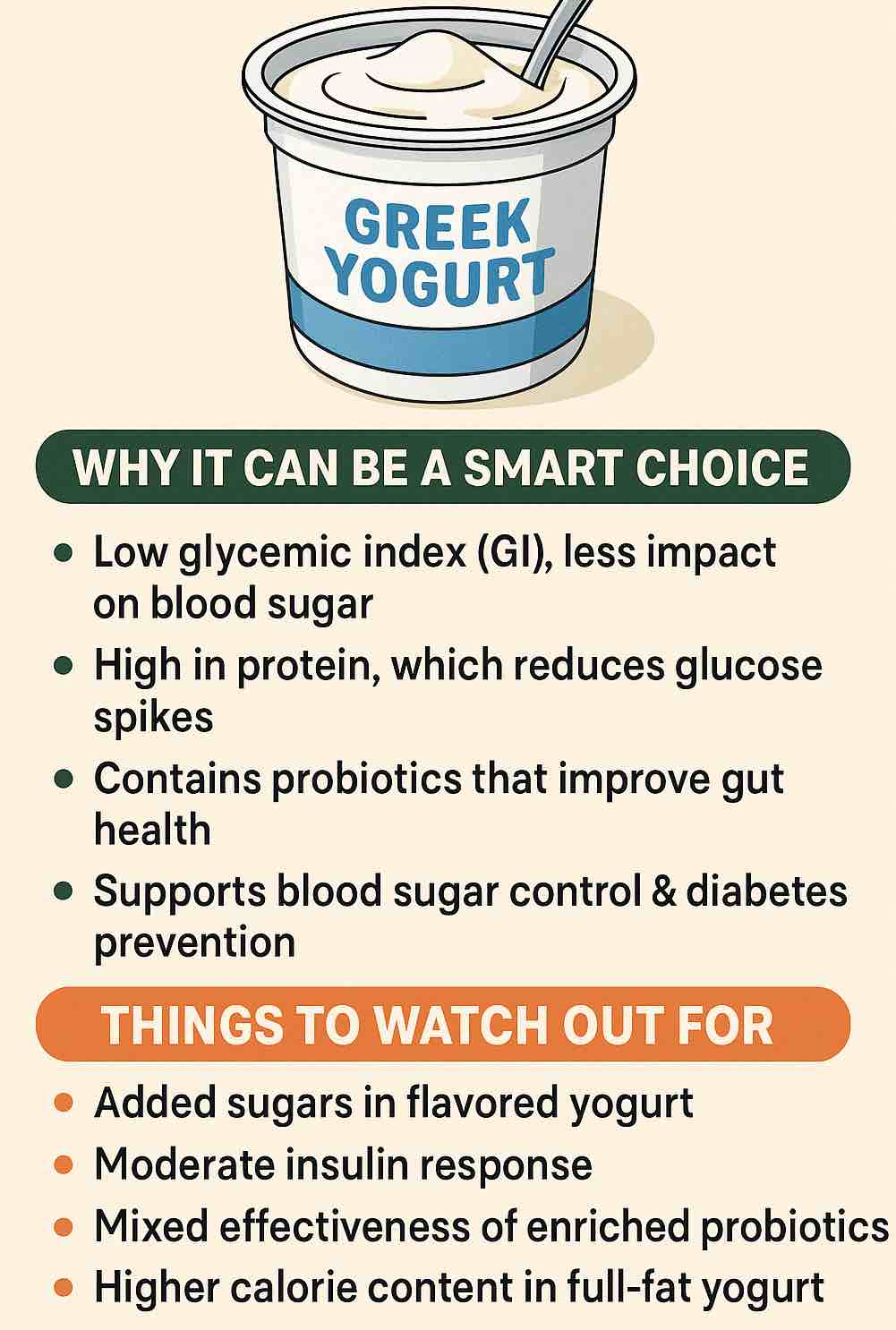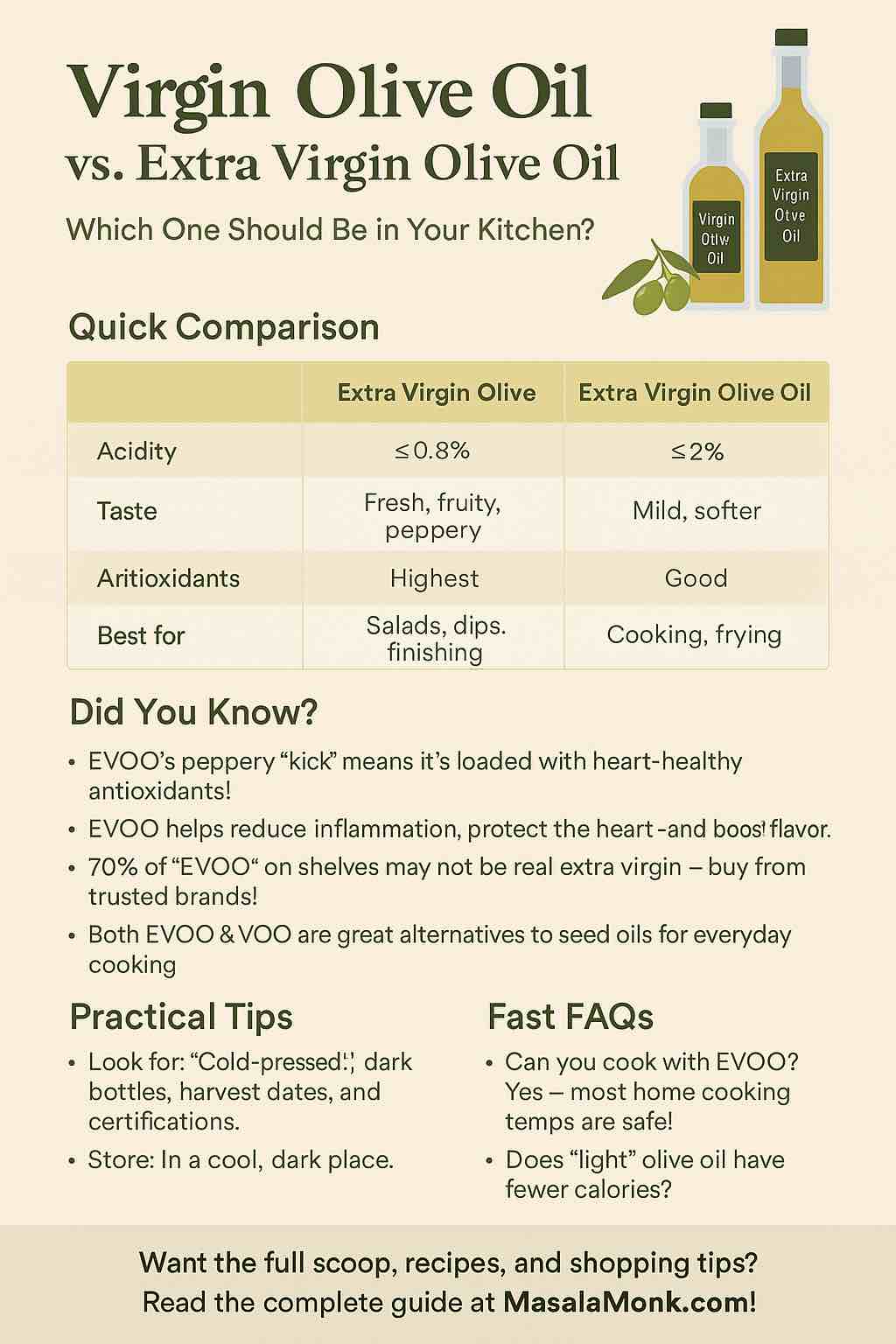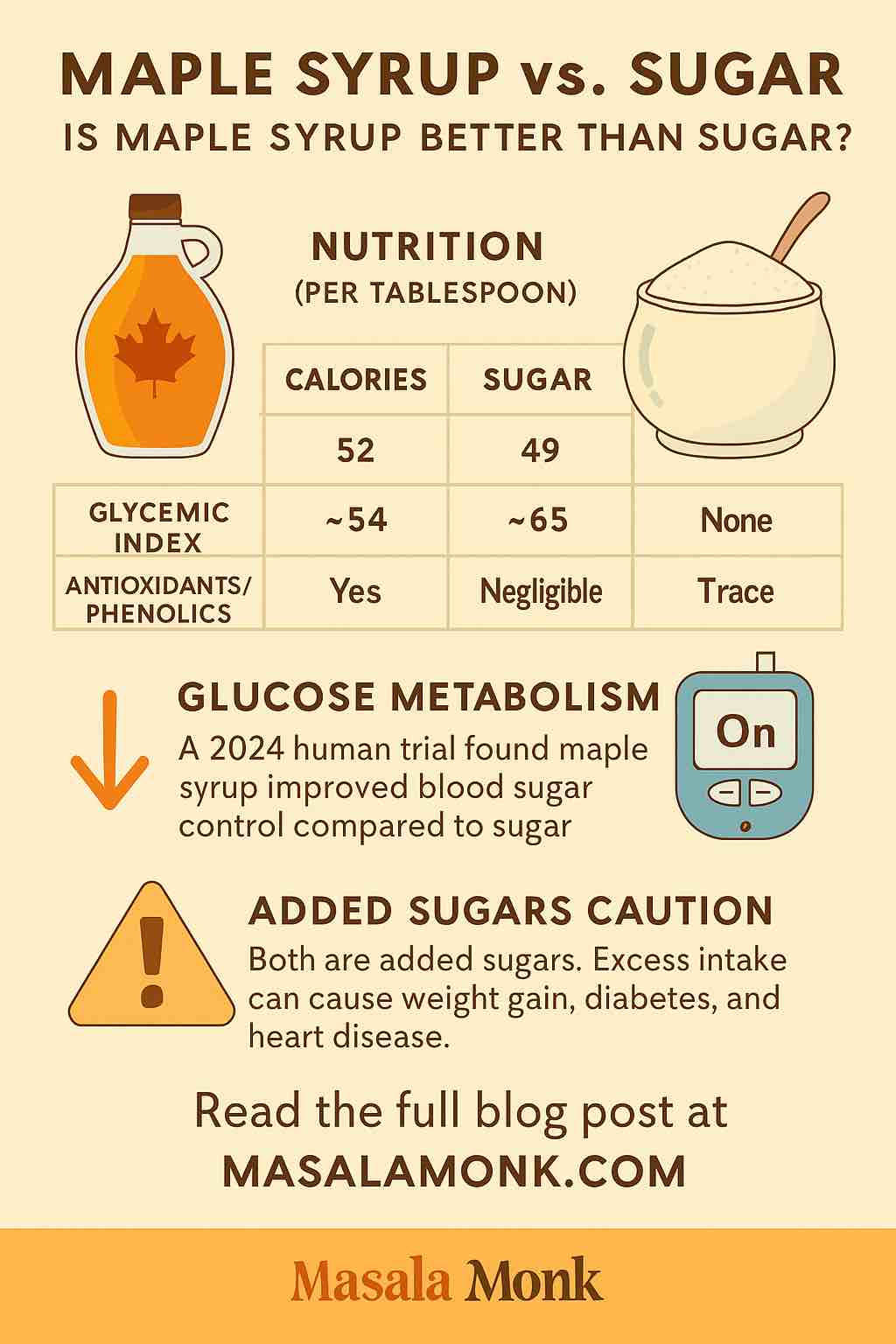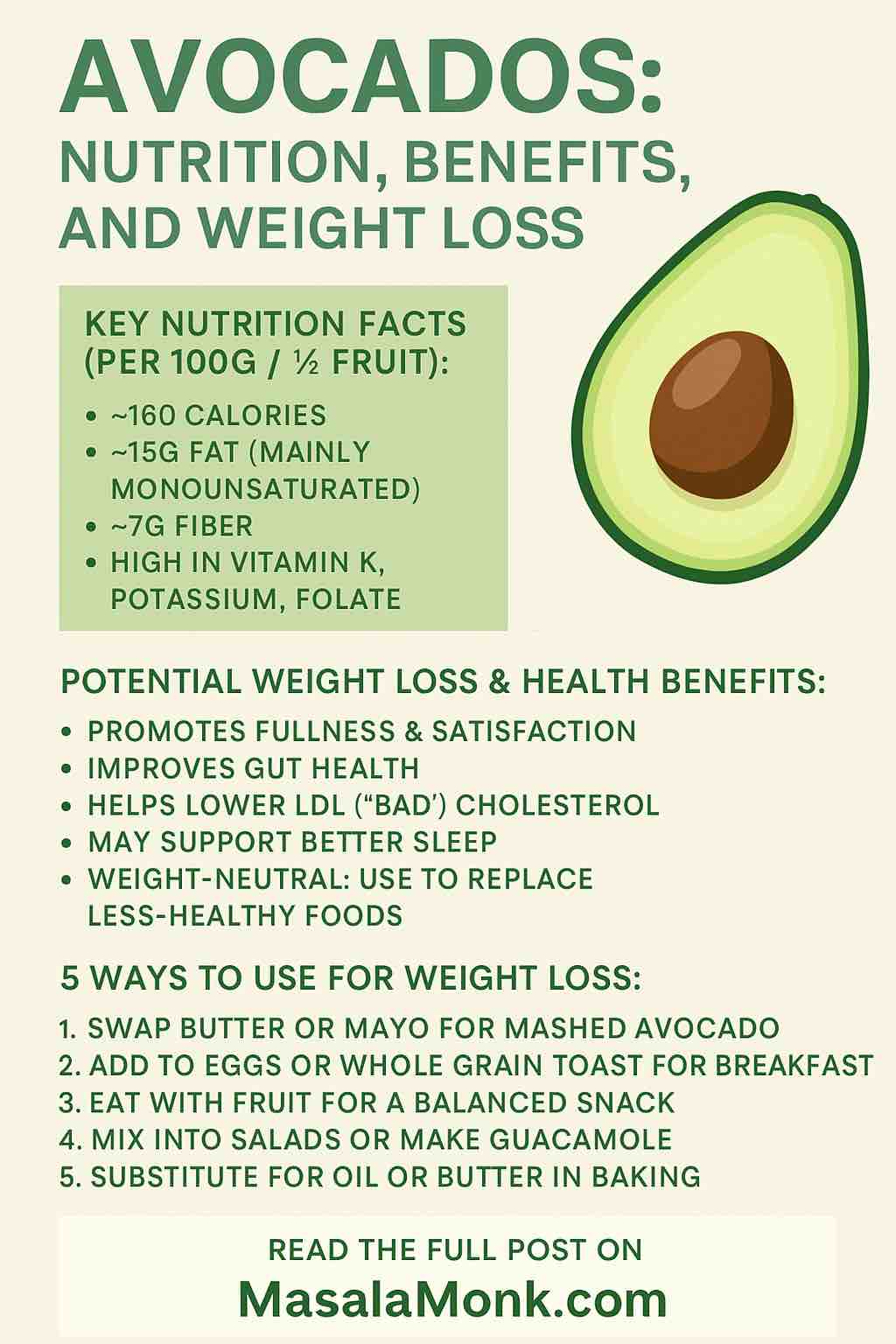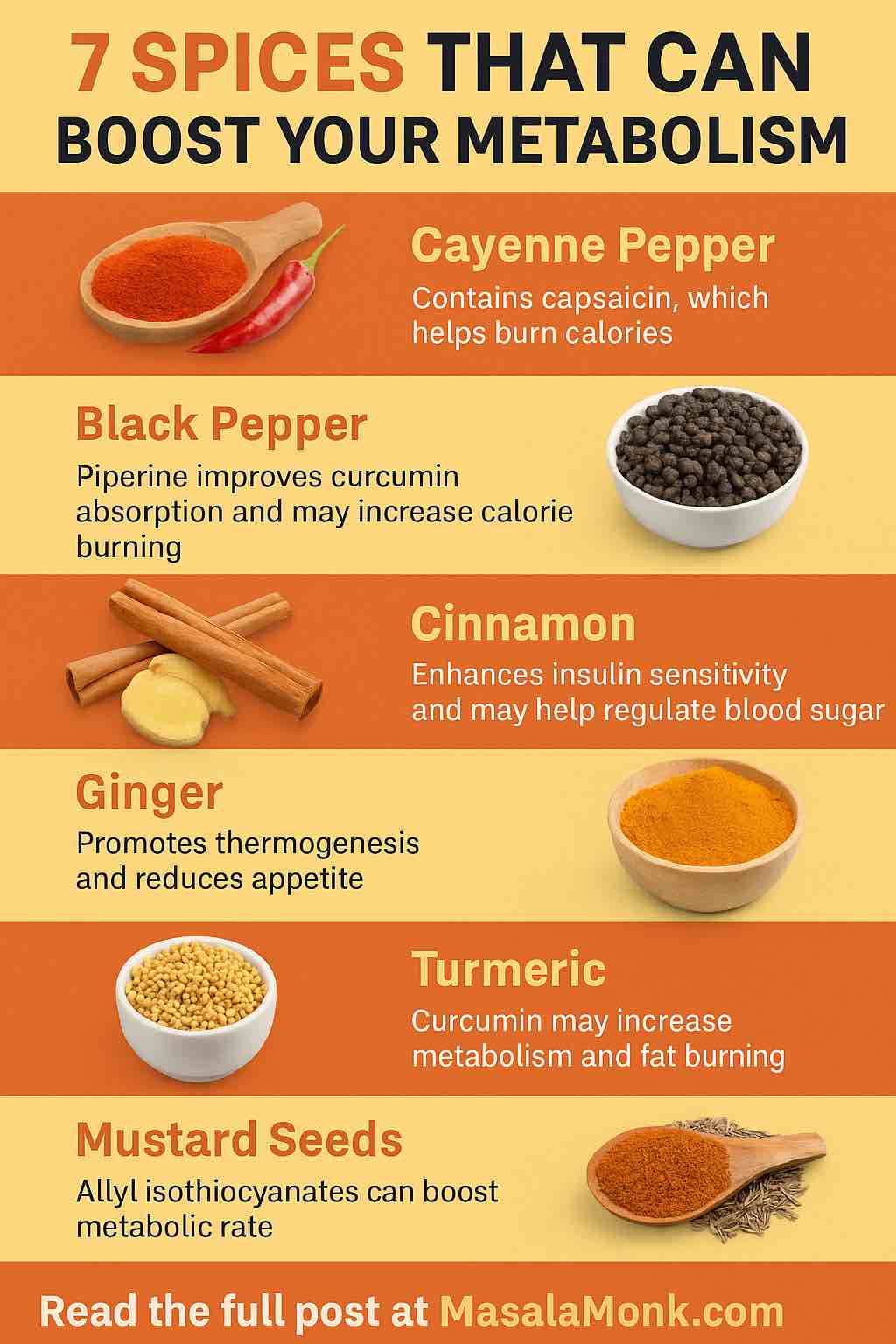
Can a sprinkle of spice really fire up your metabolism?
For centuries, traditional cuisines have relied on the power of spices not only for flavor but for health. Now, modern science is catching up, and the evidence is clear: some common kitchen spices can actually help support a healthy metabolism.
But before you reach for the hottest chili, let’s dig into the research, the benefits, and the best ways to use these metabolic marvels—while avoiding common mistakes.
1. Cayenne Pepper (Capsaicin): The Metabolic Hotshot
What it does:
Cayenne contains capsaicin, the compound that gives chili peppers their fiery kick. Capsaicin is a star in metabolic research—it raises body temperature, increases energy expenditure, and helps burn fat. Recent studies even show capsaicin can tweak your gut microbiome in ways that support healthy weight and cholesterol.
The science:
- 2024–2025 research confirms capsaicin boosts metabolism by activating both TRPV1 receptors and non-classical pathways, leading to increased calorie burn—even at rest.
- It also supports beneficial gut bacteria, which play a surprising role in weight regulation.
How to use:
Start with a pinch in soups, stews, or sprinkle on eggs. If you’re sensitive, build up slowly—your gut (and tastebuds) will thank you.
Pro Tip:
Try adding a bit of cayenne to hot chocolate for a metabolism-boosting treat.
2. Black Pepper (Piperine): The Bioavailability Booster
What it does:
The sharp bite of black pepper comes from piperine, which not only mildly increases calorie burning, but—perhaps more importantly—helps your body absorb other beneficial compounds, especially curcumin from turmeric.
The science:
- A landmark 2024 study found that daily piperine improved liver and blood sugar markers in patients with fatty liver disease.
- When combined with turmeric, piperine can boost curcumin absorption by up to 2,000%!
How to use:
Freshly cracked black pepper belongs on everything—salads, pastas, and especially in turmeric-rich curries.
Pro Tip:
Always add a twist of black pepper to turmeric recipes for maximum benefits.
3. Turmeric (Curcumin): The Anti-Inflammatory Powerhouse
What it does:
Turmeric’s active compound, curcumin, is famous for its anti-inflammatory effects, but it also boosts metabolism and fat oxidation by activating AMPK pathways in your cells.
The science:
- Recent meta-analyses show curcumin (especially with piperine) can help reduce body weight, BMI, and liver fat in metabolic conditions.
- New delivery forms (like liposomal turmeric) are being developed for even better absorption.
Safety Note:
High-dose supplements have, in rare cases, caused liver injury—so use culinary doses or consult your doctor before going heavy on supplements.
How to use:
Stir turmeric into curries, stews, or golden milk lattes. Pair with healthy fats (like coconut milk or olive oil) and a dash of black pepper.
Pro Tip:
Make a turmeric-ginger tea for a warm, metabolism-supporting drink.
4. Cinnamon: The Blood Sugar Balancer
What it does:
Cinnamon is much more than a dessert spice. Its key compound, cinnamaldehyde, helps regulate blood sugar, improve insulin sensitivity, and may gently raise calorie burn.
The science:
- Human studies show consistent, if modest, reductions in blood sugar, belly fat, and waist circumference with regular cinnamon consumption.
- Works by improving glucose uptake and possibly activating “brown” fat (the kind that burns calories).
How to use:
Add cinnamon to morning oatmeal, smoothies, or sprinkle on roasted vegetables.
Pro Tip:
Ceylon (“true”) cinnamon is milder and safer for regular use than the more common cassia variety.
5. Ginger: The Warming Digestive Aid
What it does:
Gingerol and shogaol, the spicy compounds in ginger, have been shown to boost thermogenesis (the process of burning calories to produce heat) and help control appetite.
The science:
- Recent reviews confirm ginger can modestly reduce body weight and waist-to-hip ratio in overweight adults.
- Ginger also soothes the digestive tract, making it a smart choice if you’re prone to stomach upset from other spices.
How to use:
Grate fresh ginger into stir-fries, salad dressings, or smoothies. Brew ginger tea for a warming metabolic lift.
Pro Tip:
Combine ginger with lemon and honey for a simple “wake-up” shot.
6. Mustard Seeds: The Mild Metabolic Kick
What it does:
Mustard seeds are a natural source of allyl isothiocyanates—compounds related to those in horseradish and wasabi, with the potential to boost metabolic rate.
The science:
- Some early human studies found mustard seeds can briefly increase metabolic rate, but the effect is mild and best used as part of a broader healthy diet.
How to use:
Toast mustard seeds in oil for curries and stews, or whisk ground mustard into vinaigrettes.
Pro Tip:
Try mixing whole mustard seeds into pickles or sauerkraut for an extra zing.
7. Cumin: The Subtle Fat Burner
What it does:
Cumin’s earthy flavor is paired with compounds that appear to enhance fat metabolism and reduce appetite.
The science:
- Several clinical trials suggest cumin supplementation can help with weight loss and improved cholesterol levels.
- Works best as part of a varied, spice-rich diet rather than as a stand-alone supplement.
How to use:
Add cumin to chili, lentil soups, or sprinkle on roasted vegetables.
Pro Tip:
Dry-roast cumin seeds before grinding for maximum aroma and flavor.
How to Add These Spices to Your Diet (Without Overdoing It)
- Start slow: If you’re new to spicy foods, introduce one at a time and watch how your body reacts.
- Focus on food: Culinary doses are safe and effective for most people. Supplements can offer concentrated benefits, but consult a doctor—especially if you have liver, digestive, or metabolic conditions.
- Pair for power: Some combinations (like turmeric + black pepper + fat) work better together, thanks to improved absorption and synergy.
- Listen to your body: If you experience digestive discomfort, scale back or try other spices—every gut is unique.
- Aim for variety: Different spices work in different ways, so mixing them up gives you a broader spectrum of metabolic and health benefits.
A Quick Reference Table
| Spice | Key Compound | Main Benefit | Best Use |
|---|---|---|---|
| Cayenne | Capsaicin | Boosts calorie burn, gut health | Chili, stews |
| Black Pepper | Piperine | Enhances absorption, metabolism | All savory foods |
| Turmeric | Curcumin | Reduces inflammation, supports metabolism | Curries, lattes |
| Cinnamon | Cinnamaldehyde | Regulates blood sugar | Oatmeal, baking |
| Ginger | Gingerol | Boosts thermogenesis, aids digestion | Teas, stir-fries |
| Mustard Seeds | A. isothiocyanate | Mildly increases metabolism | Pickles, curries |
| Cumin | Thymoquinone | Supports fat metabolism | Soups, roasted veg |
Final Thoughts: The Spicy Path to a Healthier Metabolism
While spices alone won’t magically melt away pounds, the science shows they’re a flavorful way to support your metabolic health. Whether you’re spicing up a stir-fry, sipping on a turmeric latte, or simply dusting cinnamon over your fruit, these kitchen staples can help nudge your metabolism in the right direction—one meal at a time.
So go ahead—open your spice drawer, experiment, and let your metabolism (and your taste buds) thank you.
Disclaimer:
This blog is for informational purposes only. For medical advice, consult your healthcare provider, especially before starting supplements or making significant dietary changes.
10 FAQs About Metabolism-Boosting Spices
1. How quickly can I expect to see results from adding these spices to my diet?
For most people, the effects are gradual and subtle—think of spices as part of a long-term healthy lifestyle, not a quick fix. Regular use can support your metabolism and weight goals over weeks to months, especially alongside good diet and exercise.
2. Are these spices safe for everyone?
Most people tolerate culinary amounts well. However, if you have digestive disorders (like IBS, GERD, ulcers), liver disease, or take medications, check with your doctor before making significant changes or using supplements.
3. Can I take these spices in supplement form for faster results?
Supplements provide concentrated doses, but they may carry risks, especially for turmeric and piperine (possible liver effects). Food-based use is safest. Always consult your healthcare provider before starting any supplement.
4. What’s the best way to combine these spices for maximum benefit?
Pair turmeric with black pepper and a healthy fat to boost curcumin absorption. Generally, using a variety of spices throughout your meals provides broader metabolic benefits.
5. Will eating spicy food alone help me lose weight?
No single spice will cause significant weight loss. These spices can support metabolism and appetite regulation, but best results come when combined with balanced nutrition and regular physical activity.
6. How much of each spice should I use daily?
There’s no strict rule—culinary amounts (1/4–1 teaspoon per meal) are both safe and effective for most. Avoid very high doses unless supervised by a professional.
7. Are there any side effects to watch out for?
High intake of capsaicin (from chili) can cause stomach upset or heartburn. High-dose turmeric/piperine supplements may cause liver issues. Cinnamon in large amounts (especially cassia) can be harmful to the liver.
8. Is there a difference between types of cinnamon?
Yes. “Ceylon” (true) cinnamon is safer for daily use; “cassia” cinnamon, more common in supermarkets, contains more coumarin, which can be toxic in large amounts.
9. Can children and older adults benefit from these spices?
Yes, in small, food-based quantities. Introduce gradually and watch for tolerance, as taste and digestive sensitivity can vary.
10. Can I use these spices if I’m pregnant or breastfeeding?
Small culinary amounts are generally safe, but avoid supplements and very spicy foods. When in doubt, consult your healthcare provider.

